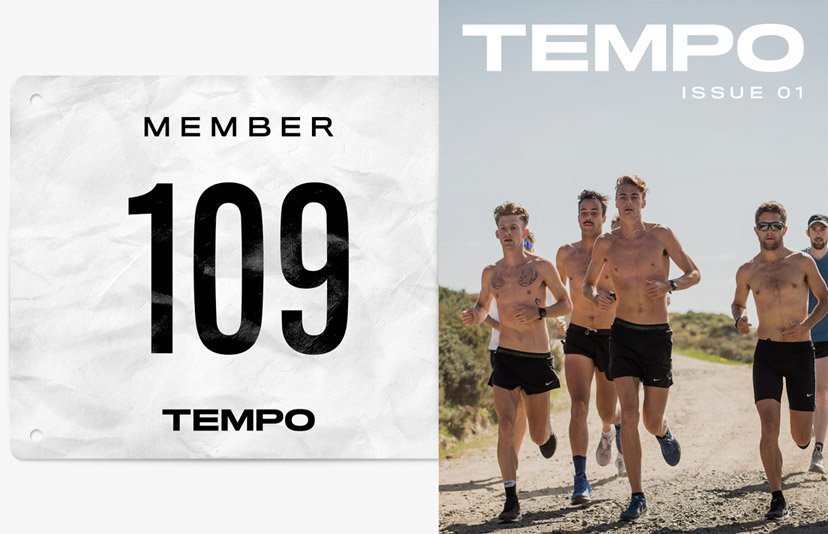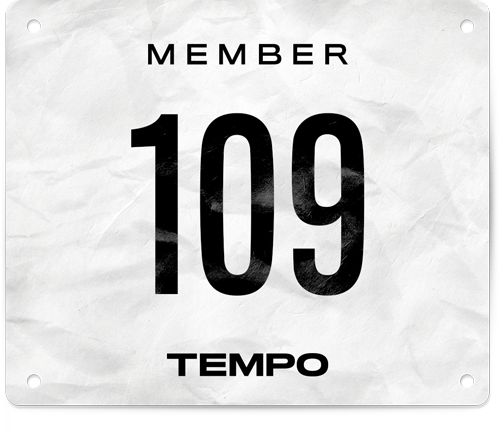Culture
The pulse of Africa: Part One
Exploring everything that makes Ethiopia unique
Modern Ethiopia is an incredible, vibrant country with a rich history. Many in the western world know little about this East African powerhouse other than the famine which crippled the country in the mid 1980’s. I’m here to learn more about its past, experience present day Ethiopia, and understand how it became the greatest running nation in the world.
Often when we think of developing nations, we measure their progress against western standards - do they have McDonald's, how good is the wifi, and do they play Drake on the radio? Something that became clearer and clearer to me in my first 48 hours here, is that Ethiopians aren’t looking to be more like Americans or Europeans. There is immense and immovable pride in being Ethiopian, and by the time I board my flight back to Australia, I can understand why.
On my first day in Addis Ababa, in fact in my first 8 hours in the capital, 4 separate people tell me about a main source of Ethiopia’s pride. It’s the only country in Africa that was never colonised, despite the Italians sending the largest land army ever to Africa in the late 19th century, with the sole aim of taking Ethiopia. This was a time of rapid colonisation throughout Africa; in a 30 year stretch from 1880, European countries had taken virtually all of Africa.
A product of this independence is the Ethiopian calendar. There are 13 months; 12 with 30 days and a 13th with between 5 and 9 days. While my watch tells me it’s Nov 2018, the Ethiopian calendar displays a date in March 2011. The clock strikes midnight at sunrise, signalling the start of a new day.
I’m about to learn a lot about the psyche of the modern Ethiopian - at times it will frustrate me, at times it will make me smile, and at times it will make me question my own outlook, but above all I’ll leave Ethiopia full of hope for the future of this incredible nation.
STOP ONE: ADDIS ABABA (2,355m above sea level)
Addis Ababa, which means ‘new flower’ in Amharic, is a utilitarian city and the capital of Ethiopia, a country that is home to an estimated 105 million people. You won’t find a lot of traditional definitions of beauty here; many major roads are gravel, while donkeys, goats, and other animals mingle with pedestrians and road users, and like many developing cities there are issues with congestion and pollution. What you will find is beauty in the rawness; Addis is a city of grit and grind, of honest work, and most importantly, of something bigger than hope - people here have a true belief that they will see a brighter future.
Meskel Square plays an important part in the history of Addis, and has been a natural gathering point for its citizens for hundreds of years. It has been the site of mass protests and celebrations, and today is part transport hub, part street-football stadium, and of course - a running and fitness destination.
While you won’t find elite athletes training here any more (as they did in the 1980’s and ‘90’s), every morning at sunrise you will find hundreds of Ethiopians doing their daily workouts. From high energy, aerobic style workouts, to solo runners jogging the levels of the ampitheatre, these are ordinary citizens who start their day the same way every morning.
Outside of Meskel, Addis itself is not conducive to training. There is simply too much congestion, and too little free space in which to roam. Thankfully, just a short drive from the centre of town is Mount Entoto, which sits at a staggering 3,200m altitude (10,500 ft). Entoto is a popular spot for many athletes to do their long runs, its grass hills and red dirt making it an ideal training ground for national teams.
"Meskel Square plays an important part in the history of Addis, and has been a natural gathering point for its citizens for hundreds of years."
Riley Wolff
Closer still to Addis than Entoto is a small forest area that looks like nothing from the roadside - but once you enter you're presented with vast trail networks and obvious signs that serious training happens here. On our second day in Ethiopia it's the setting for some basic interval work. After a 15 minute warm up, the screws are slowly turned until the pace is comfortably uncomfortable. Runs here are not done on long straight roads - they wind through the forest, zig zagging and bending around tree trunks, first down the hill, then up, then along it. It’s not uncommon to run 5 kilometres in the space of a football field, such is the back and forth.
Serious workouts are done in single file, and in silence. The only sounds you’ll hear are those of the leader clicking their fingers left or right to call out an obstacle. In the forests above Addis those obstacles could be any number of things - a cow skull, a pothole, or if you get the dreaded simultaneous left and right click - it’s time to jump something.
"Running in Ethopia is hard. If you work hard, you can be happy and earn some money.
If you don’t work hard, it is not a good life."
Degefe Yohannese Lafebo
The only thing more Ethiopian than running is coffee. Popular history suggests coffee being first discovered here around the 10th century; at least 300 years before it caught on anywhere else in the world.
As we sit in the post-workout haze and wait for our coffee and our Spris to arrive (a layered smoothie), life in Addis rolls on. Traffic is constant, as are the undecipherable animated conversations going on all around us.
Large groups of locals sit and discuss politics over coffee - conversations that wouldn’t have been permitted here even 12 months ago, before new Prime Minister Abiy Ahmed ushered in a new era of freedom of speech and political commentary.
At a table nearby, two young men catch up over a meal. I do a double take when I notice them sharing a large plate of spaghetti, which they eat with injera - a thin, flat, almost-sour tasting bread made of the grain teff, and indigenous to Ethiopia. It's a culture collission I don't think I could stomach - but one that my travel partner Brian embraces for the rest of the trip.
There’s also the opportunity to have the clumping red dirt removed from your shoes, thanks to enterprising young locals. Shoe cleaners are everywhere in Addis, and the service makes a lot of sense; good shoes are not easy to come by and need to be preserved, and a regular income is even harder to lock down. Many children are still missing out on an education because they need to contribute to the family.
When we're not running, we're exploring Addis on foot. The city is a maze; narrow, winding roads with limited obvious landmarks - again, this is a utalitarian city that is not particularly reliant on, or set up for tourism. That probably makes it all the more appealing.
For now though, it's off to Bekoji to steal some secrets about distance running.
STOP TWO: BEKOJI (2,810m above sea level)
Bekoji sits around 200km south of Addis, a journey that can take as many as 5 hours by car thanks to entire stretches of highway being eroded, and the near constant populations of donkeys, goats and horses that vehicles must share the roads with.
Along the way we pass through the town of Assela, and have lunch at Derartu Tulu’s hotel. Tulu, famous for her 10,000m victories in both Barcelona and Sydney (not to mention her major marathon victories), is a popular figure in Ethiopia, and cherished in the town of Bekoji, where she grew up. We also make a coffee stop in a small, roadside village. There’s no Starbucks here and there is always time for the traditional coffee ceremony, which among other things involves roasting the beans over a small charcoal stove. Coffee is often served with tena’adem, a leaf you stir through your coffee to add some spice, and which Ethiopians believe holds medicinal value.
The change of pace to life in Bekoji is evident as soon as we arrive. Cars are swapped out for horse and carts - something I initially assume is a show put on for the tourists, but quickly discover is still the main mode of transport for many locals here.
Bekoji is of course the town where runners such as Derartu Tulu, the Dibaba sisters, and the Bekele’s became athletes - it was made famous in a 2012 documentary Town of Runners, and the local coach, Coach Sentayehu, is one of the world’s most renowned names when it comes to raising talented juniors.
Our first activity in Bekoji is afternoon practice with Coach and one of his junior groups in a field. The workout is a pretty standard light-workout done zig zagging through the grass field, which is shared with local cattle. It’s similar to our workouts in Addis; single file and no talking. Towards the end there are a few extended strides before cool down exercises. The group remain in their tracksuits for the duration of the workout - there’s no need to extend themselves this afternoon, not with a time trial coming up tomorrow morning.
Whether it's here in Bekoji, back in Entoto, or in Sululta where we're headed next, running on grass is common in Ethiopia. Like Kenya, there are no shortage of dirt or gravel roads to run on, but the grass offers something else.
To be clear, we're not talking grass athletics tracks, or the pristine golf courses that a lot of XC races are run on. These are paddocks or unkempt patches on the side of a mountain, uneven and unique in every way.
Running through this grass requires concentration and focus in every stride - it's easy to lose footing and roll an ankle, especially when running at speed in single file.
On race day, this training translates to stronger, better balanced athletes.
The next morning we wake early; excited to get to the track, and hopeful the hot water has been turned back on at our guest house. It hasn't, and the timetable for its return is unclear. I'm reminded of a phrase one of our guides said to me when we first met, 'You are in Africa now, there is no rush.'
The athletics track in Bekoji is close to the centre of town, near the market. The infield acts as a football field as well as grazing land for livestock (sometimes concurrently). The track itself is dirt, with a well worn lane on the inside. Lanes 3 to 6 range from patchy to non-existent, as grass and weeds creep ever closer to the infield during the rainy season. Lane markers aren’t required here - fight for the inside or try your luck dodging the occasional cow or goat out wide.
After the wider group completes a morning session, the Under 17 athletes prepare for the time trial. The 5,000m is scheduled first, all the way down to a 400m.
For more from the Bekoji Time Trial, check out our feature gallery here.
Walking back from the track to our guesthouse, we pass by the market; the main centre of trade and the pulse of the town. It only operates two days a week; tomorrow we will get to experience it. Today, the locals are going about their work, stopping only occasionally to observe us as we pass by - they're used to foreigners here, as Chinese companies paved the roads in and out of Bekoji in the last decade, but we still warrant attention. Most are happy with a warm smile and a nod of the head, whereas the kids are more forward - high 5's, waves, and their favourite activity - rubbing my legs to see if my tattoos rub off.
Another highlight of our time in Bekoji was checking in on charity organisation Girls Gotta Run Foundation (GGRF), a group dedicated to facilitating brighter futures for girls and their mothers. They do this through teaching the girls important life skills, keeping them in school and peer social groups - which lessens the chance of being married off at the average age of 14, and providing programs for mothers to achieve financial stability.
I was lucky enough to tour the local market with GGRF Executive Director, Kayla Nolan, and to meet some of the mothers who have benefited from the program. It’s confronting to hear how hard life can be for Ethiopian families, let alone the disadvantages that young girls still face growing up in this country, but it’s some comfort to see the outstanding work Kayla and the team are doing in Bekoji.
For more on Girls Gotta Run, check out our full feature here.
It’s often said that travelling to hot spots in Ethiopia or Kenya can have you rubbing shoulders with elite athletes without even knowing it. You can't predict it, and you'll never know who's in town, but if you have your eyes open you may see someone special.
In our case, in a room next door to me at our guesthouse was Lehlohonolo Makaja, a man managing two elites from Botswana while they train with Coach Sentayehu in Bekoji.
We were privileged to witness the athletes at an afternoon session in the field, where despite the humid climate, everyone left their full tracksuits on.
I asked Makaja why this was, and he stated only that 'Even if you are hot, you must not let people see that it is difficult'.
Following the session, we split a ride back to our guesthouse with the athletes, and in that moment where we shared a laugh about trying to pronounce each other’s names, the global athletics community feels so small, and so connected.
For more on the program sending Botswana’s athletes to train in Bekoji, check out our full feature here.
Finally, it’s time to leave Bekoji and make our way back to Addis, and then on to Sululta; another high altitude training ground which is most famous for being the home to Haile Gebreselassie’s first resort, and more recently Kenenisa Bekele’s track.
We’ll end our trip rubbing shoulders with Zersenay Tadese, Stephen Kiprotich, and more, as Addis Ababa hosts the Great Ethiopian Run, the biggest 10k race in Africa.
Part two of our Ethiopia recap coming soon to TEMPO.


